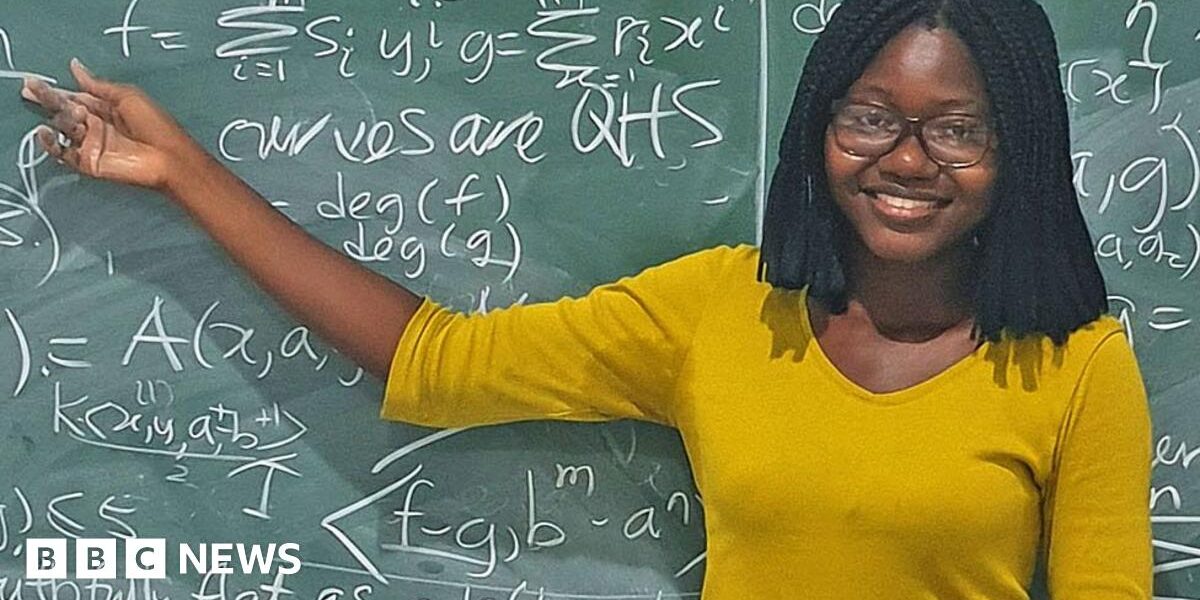But her grades, although high, were not high enough – and so she was accepted instead for mathematics and economics.
“It was a blessing in disguise,” Dr Tabiri says. “Numbers and puzzles fascinated me – but I never thought a career in maths was for me.”
In 2015, Dr Tabiri got a scholarship to do her PhD at Glasgow University in Scotland. It was hard work, she says – and it was there that she experienced a seminal moment.
She went to see Hidden Figures, the film about black American women mathematicians who worked at the US space agency, Nasa, in the 1950s, during the era of segregation in the US.
“It was amazing seeing the story of these black women told on that global stage,” she remembers. “I had a lot of goose bumps watching it.”
She was particularly inspired by Katherine Johnson, whose extraordinary mathematical skills and calculations were so crucial to the success of US space flights.
“Katherine Johnson worked so hard – and for a long time her work was hidden. She made me realise that I just have to keep going.
“If your work is not even recognised now, it will be recognised sometime in future. It was a real turning-point for me.”
Ghana reached an historic milestone in 2024 when Dr Gloria Botchway became the first woman to graduate from the University of Ghana with a PhD in maths.
It was a journey full of hardships – including selling water and yams at the roadside as a six-year-old.
Dr Tabiri is trying to support other African girls and women from less privileged backgrounds to follow their maths dreams through her FemAfricMaths non-profit organisation.
Along with other volunteers, she gives lessons to the youngest high-school students in person and online.
She also posts on social media interviews she does with leading female mathematicians from all over the world.
Dr Tabiri is also hugely passionate about the potential of quantum science and technology – for which mathematics is essential.
She is proud that Ghana, backed by Mexico, spearheaded proposals that 2025 be declared the UN International Year of Quantum Science and Technology – on the 100th anniversary of the discovery of modern quantum mechanics.
Quantum mechanics emerged from studies to uncover how ultra-tiny particles – the most fundamental bits of matter, energy and light – interact with each other to make up the world.
It led to the development of the internet, solar cells, and global navigation satellite systems.
Researchers and big tech companies from across the world – including China, the US, the UK, Australia and South Africa – are now racing to develop quantum technologies, including quantum computers and ultra-precising measuring and sensor devices.
The hope is that complex problems will be solved at lightning speeds – and there will be huge innovations in areas like medicine, environmental sciences, food production and cyber-security.
“There are lots of conversations now – the advantages and disadvantages – the jobs that will be created,” says Dr Tabiri.





